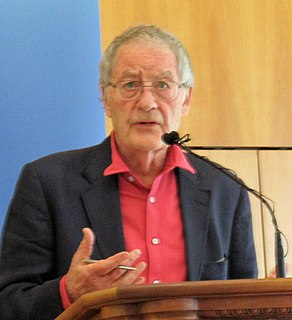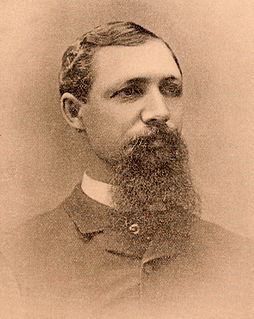A Quote by Kenneth L. Woodward
All religions remind us that actions have consequences for which guilt can and must be acknowledged, forgiveness humbly begged, reconciliation sought.
Related Quotes
Forgiveness breaks the chain of causality because he who 'forgives' you--out of love--takes upon himself the consequences of what you have done. Forgiveness, therefore, always entails a sacrifice. The price you must pay for your own liberation through another's sacrifice is that you in turn must be willing to liberate in the same way, irrespective of the consequences to yourself.
This doctrine of forgiveness of sin is a premium on crime. Forgive us our sins means Let us continue in our iniquity. It is one of the most pernicious of doctrines, and one of the most fruitful sources of immorality. It has been the chief cause of making Christian nations the most immoral of nations. In teaching this doctrine Christ committed a sin for which his death did not atone, and which can never be forgiven. There is no forgiveness of sin. Every cause has its effect; every sinner must suffer the consequences of his sins.
It cannot be said too often that actions are good or bad in the light of consequences, and that a clear perception of consequences would control actions. That which increases the sum of human happiness is moral; and that which diminishes the sum of human happiness is immoral. . . . Blind, unreasoning obedience is the enemy of morality.
In short, my vision of a responsible free society is one in which we discourage evil, but do not prohibit it. We make our children and students aware of the consequences of drug abuse and other forms of irresponsible behavior. But after all our persuading, if they still want to use harmful drugs, that is their privilege. In a free society, individuals must have the right to do right or wrong, as long as they don't threaten or infringe upon the rights or property of others. They must also suffer the consequences of their actions, as it is from consequences that they learn to choose properly
Religion is spelled 'D-O', because it consists of the things people do try to somehow gain God's forgiveness and favor. But the problem is that you never know when you've done enough. But thankfully, Christianity is spelled differently. It's spelled 'D-O-N-E', which means that what we could never for ourselves, Christ has already done for us. To become a real Christian is to humbly receive God's gift of forgiveness and to commit to following His leadership.
Narcissists are everywhere in this ripe age of self-love, which amazes me because so much in life would seem to foster humility. Each of us is a potential source of foolishness, each of us must endure the consequences of the foolishness of others, and in addition to all of that, Nature frequently works to impress upon us our absurdity and thereby remind us that we are not the masters of the universe that we like to suppose we are. - Odd Thomas - Odd Apocalypse by Dean Koontz pg 62 chapter 8
































